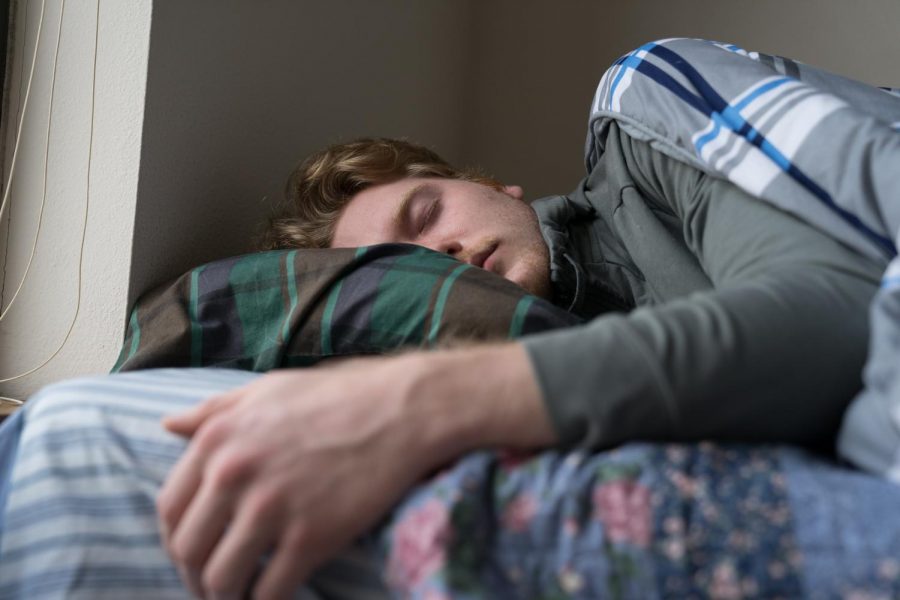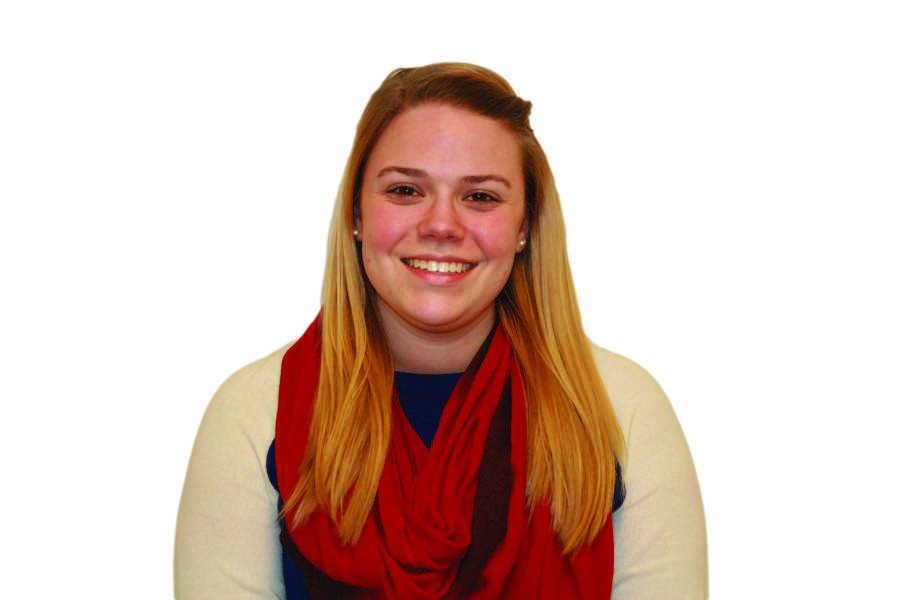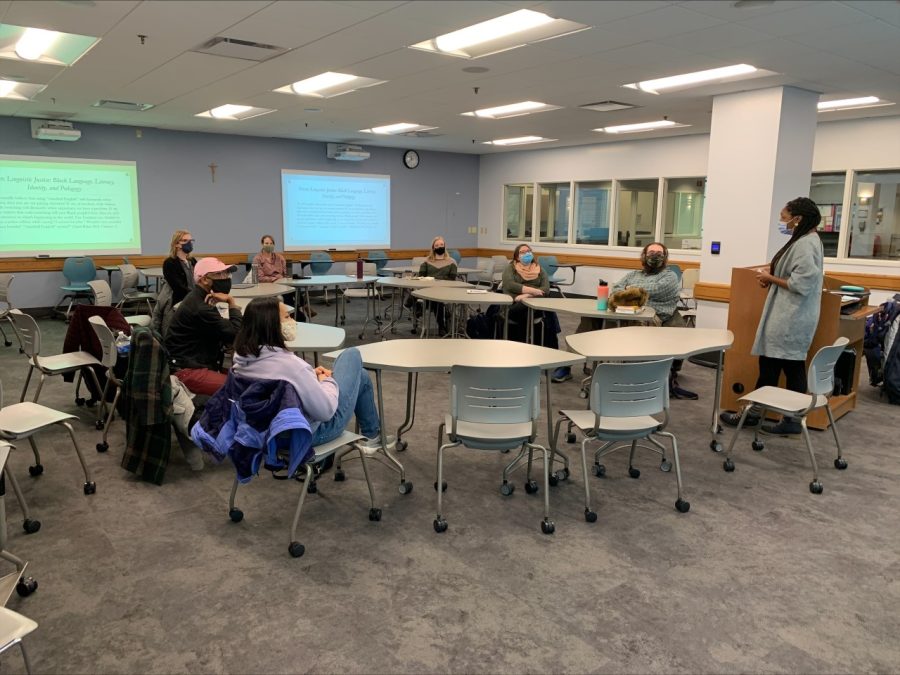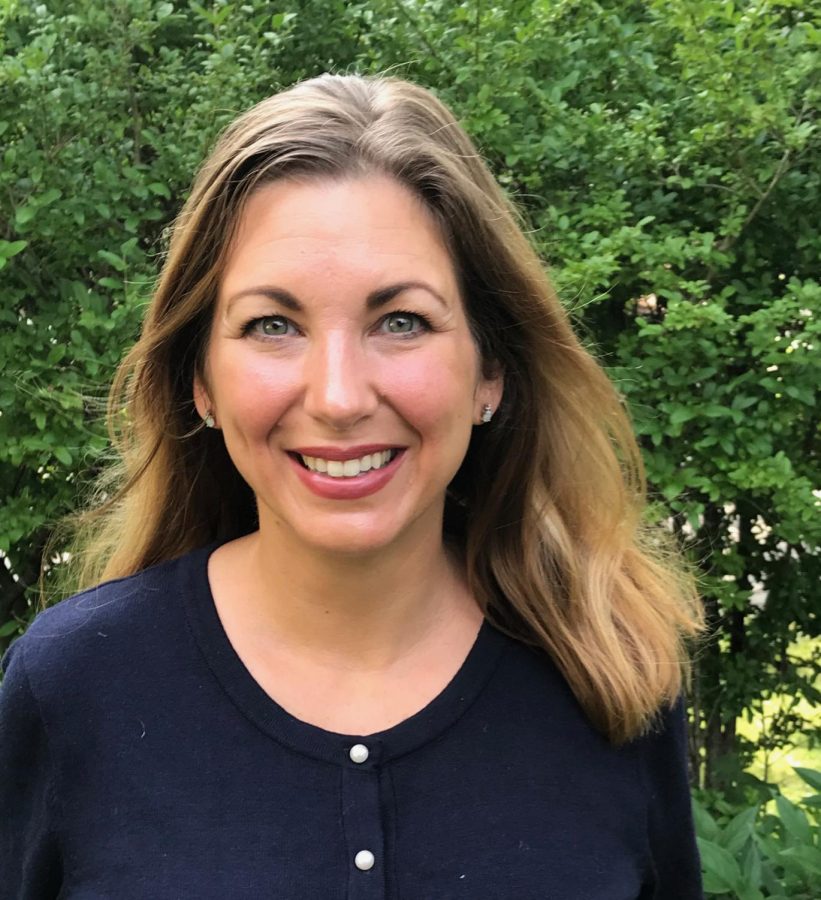Its origins unknown, National Public Sleeping Day, this Thursday, invites people to take a break and close their eyes on the bus, a bench, in the grass or anywhere fit for a nap. Not reserved for this Thursday, public sleeping certainly is not an unfamiliar concept to students who occasionally find themselves falling asleep in the library or during class.
Darren Jefferson, a sophomore in the College of Arts & Sciences, said he occasionally falls asleep in class, depending on the environment.
“If the professor turns the lights off, they’re asking me to fall asleep,” Jefferson said, adding that lecture halls with comfortable seats increase the chances that he will doze off.
While he has never been woken up by a professor, Jefferson said he has seen professors finish their lectures next to a sleeping student and pull them to the side after class.
Jefferson said he never falls asleep simply because a class is boring, but rather because he did not get his full eight hours of sleep the night before.
Brad Cooley, a sophomore in the College of Arts & Sciences, said said if he is sitting in a lecture he will nod off, but if the class is active, or involves group activities, he is not inclined to fall asleep.
Cooley said he usually notices other students falling asleep during 8 a.m. and 1 p.m. classes.
With two parents who are professors — his mom, an accounting professor at the University of Connecticut, and his dad, a calculus professor at Massachusetts Institute of Technology — Cooley said he has heard his share of stories about students falling asleep.
Cooley said his mom will walk behind sleeping students and kick their chairs to wake them up. He also said she once dropped a sleeping student’s textbook on the floor. However, Cooley said, his mom was unsure of what to do when three of her students fell asleep in a row.
“(My dad) doesn’t care,” Cooley said. “He mostly teaches upper level math classes and figures that his students are smart enough to figure it out.”
Cooley said he thinks his mom is more likely to wake students up because her students are mainly freshmen.
Melissa Shew, visiting assistant professor of philosophy at Marquette University, said she uses catching her students sleeping in class as a chance to check in with them, a lesson she learned her first day of teaching.
Shew said the first class she ever taught was a philosophy course at the University of Oregon 16 years ago. On her first day , she said she noticed one student who fell asleep several times during class. Nervous and a little annoyed, Shew said she pulled her student aside after class to ask why he kept falling asleep. Shew said she was surprised when her student told her he had narcolepsy. Shew also said she immediately changed her approach to sleeping students and switched her perspective after students asleep in class is not always related to her teaching.
“Its really important for professors to be vigilant of students’ conditions,” Shew said, adding that she now takes a more caring approach when she catches students falling asleep in class.
She said she supports all initiatives for students to get more and better sleep, suggesting that it would make them more inclined to get up for morning classes.
Shew said she had a student 10 years ago who consistently fell asleep in one of her metaphysics classes at Marquette. When she pulled him aside to make sure everything was okay, he told her it was because he had been out partying the night before. Shew said while she wasn’t as sympathetic to this student, she would make sure to always wake him up and tell him to grab a coffee or take a quick walk down the hall to wake up.
“I think it’s good to check in,” Shew said. “It’s all a part of cura personalis.”
With midterm exams approaching, students can use National Sleeping Day this Thursday as a reminder of the importance of getting a full night’s rest.





